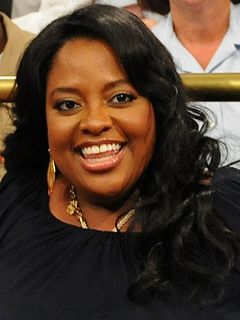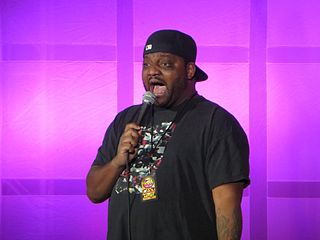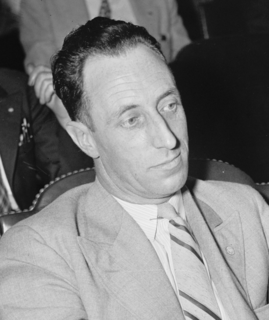A Quote by Nina Hoss
Mainly I got to know about the atmosphere in the East Germany and how people felt, because I never experienced it physically. You can't talk, because everywhere there's someone listening in on everything you say, and you might get things wrong and be questioned or they come up and say, "Well, actually, we want you to work for us and if don't, we'll pressure you," and stuff like that. Living in a country like that, how do you get around it and still keep your dignity? I think it's one of the main questions.
Quote Topics
About
Actually
Around
Atmosphere
Because
Come
Come Up
Country
Dignity
East
East Germany
Everything
Everywhere
Experienced
Felt
Germany
Get
Got
How
Keep
Know
Like
Listening
Living
Main
Mainly
Might
Never
People
Physically
Pressure
Questioned
Questions
Say
Someone
Still
Stuff
Talk
Things
Think
Up
Us
Want
Well
Work
Wrong
Your
Related Quotes
With me being in so many pain from when you have a betrayal from your best friend - who was my husband - and the girl got pregnant, I couldn't even get out of bed. The only thing that saved me was my stand-up. I would get on stage and just talk about stuff, and I made people laugh. A lot of women e-mail me and say, 'How do you smile? How do you laugh at something like this?' That's how I do it. I laugh because that's how I get through pain.
I think it's good for the fans, as well, because they get to connect with you directly. You know, in the old days, if I wanted to, like, write to (Steven) Spielberg or Sam Raimi or whatever, I'm not sure I could actually write a fan mail and (I'd) have no idea where to actually send it. Nowadays, you can just, like, follow Ashton (Kutcher who still has among the most followers on Twitter) or, like, friend someone, you know, on Facebook, and you can actually just say, "Hey, I like your stuff."
In North America, people get a sense that something is really wrong in government and in our culture. There is a corruption, not only in politics, but of spirit as well, when people are so quick to be violent with one another. I think everybody would like to be able to find a solution to make things better. We have the desire to reform inside of us, and we get frustrated because we don't know how to change things, even if it comes to our own behavior. Sometimes you get frustrated because you don't know how to stop that thing that you know is either hurtful to yourself or someone else.
Half of my library are old books because I like seeing how people thought about their world at their time. So that I don't get bigheaded about something we just discovered and I can be humble about where we might go next. Because you can see who got stuff right and most of the people who got stuff wrong.
I'm not really sure why so much people still listen us. I think we live in an era when people get attached to stuff, and it means something. Then I think a lot of people heard about it over the years - like somebody's older brother might tell them, you know, because we're from his era, and he might be like, "You need to listen to this; this is what it's all about," you know what I mean? I don't know, man, it's hard to say. But it makes us feel special.
I know when the anthrax thing hit - white people, y'all was very nervous. Y'all would come up to me at work and warn me, like 'Oh my God, Aries, be careful. Don't open your mail.' Let me tell you something - black folks was never worried about anthrax because, half the time, we don't open our mail no way. We might think that's a bill. We might hold it to the light and go, 'That's a red slip.' If you want to get us with anthrax, put that in a Jay-Z CD. That's how you get us.
When people say, "Show your face, you're not ugly." I want to say, "I know. I'm not doing it because I think I'm ugly; I'm trying to have some control over my image. And I'm allowed to maintain some modicum of privacy. But also I'd like not to be picked apart or for people to observe when I put on ten pounds or I have a hair extension out of place." Most people don't have to be under that pressure, and I'd like to be one of them. I don't go on Twitter. Because when people say things like, I don't know, "I hope you get cancer and die," it hurts my feelings.
It's botherin' me, man. You know, you can't say this, you can't say that, I'm like, well, how am I gonna talk about the world? You know? I mean I need to talk about something to you all, can I - can I do it? Can I talk to y'all? I mean, I hope the kids are in bed, you know, because I got to talk, y'all.
I didn't know Harlem existed. I didn't know there was such a place, because I grew up in white Queens, where five miles is 100 miles. So I went to the school and, being a smart cookie - as they called us in those days - I had a million questions. How did this place exist? How come I didn't know about it? Why are people living like this? Do they want to live like this?
We were thinking about how other people deal with this career on every song. We got to meet people like Thom Yorke and hear him say how it's never normal when fans just come up to you. It's always a strange job. We don't want to come off like we're pitying ourselves for having this job because it's really amazing in a lot of ways. But there's a lot of stuff that comes with it that we're not really comfortable with.
One of the things I noticed about the Trump supporters was a lot of projected fear. I can't tell you how many times a conversation went like this: "We've got to stop these immigrants, because it's terrible." I'd say, "Okay, what personally have you observed about this?" And there would be basically nothing in that box. And I'd say, "Where'd you get your information?" thinking they were going to say Fox. But they would always say, "Well, I get my information from all kinds of sources." Fox is kind of center-left to a lot of people now.
I think, ultimately, the problem with something like this is that you actually have so many more opportunities to say something than you actually have things worth saying. And then, as an artist who doesn't want to do bad work, gosh, how do you fill up all that space when you really don't have anything actually worthwhile to say? And that's what makes the job tough, because the fans get mad - "That's not funny," or "You've been sucking for several months now." And you go, "It's not my fault! I'm trying."
Finally, it was about how people treat one another. It was about human dignity. We forced the employers to treat us as equals, to sit down and talk to us about the work we do, how we do it, and what we get paid for it. And I believe that the principles for which we fought in 1934 are still true and still useful. Whether your job is pushing a four-wheeler, or programming a computer, I don't know of any way for working people to win basic economic justice and dignity except by being organized into a solid, democratic union.
When you talk about what you want and why you want it, there's usually less resistance within you than when you talk about what you want and how you're going to get it. When you pose questions you don't have answers for, like how, where, when, who, it sets up a contradictory vibration that slows everything down.




































